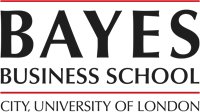You will need a valid passport and visa for visiting China. We recommend that you apply for a tour visa.
You may apply for a tour or a visitor's visa at the Chinese Embassy, or at the nearest consulate general. It may take a few days or weeks to get your visa. For detailed information, please contact your local Embassy or Consulate.
If you prefer to apply for a visit visa, the maximum duration is no longer than 10 days (July 24 – 2 August), the procedure for the invitation letter from Tsinghua University is shown as follow (all forms are available at the conference website):
(1) To complete the online registration form and pay registration fee.
(2) To complete  the invitation letter application form (including your name, passport number, etc.).
the invitation letter application form (including your name, passport number, etc.).
(3) To scan the passport information page.
Please email the required documents above to ccirm@sem.tsinghua.edu.cn.
It takes two weeks to issue an official invitation letter for Visa application, we advise that you complete all forms before June 15, 2016.
Other General Information
Weather
The average daily temperature of Xi’an is about 32 °C. All meeting rooms have air conditioning.
Insurance
To protect yourself and your personal belongings while you are traveling in a foreign country, it is your responsibility to obtain adequate travel and health insurance before leaving your own country.
Electricity
Electricity is supplied at 220V, 50Hz in China.
Currency Exchange
In China, RMB is the only accepted currency. However, exchange centers can be found at airports, most hotels, and in large shopping centers. The exchange rate is about US$ 1 = RMB 6.5. When exchanging money, please keep your receipt by which you can change any remaining RMB back to foreign currency when leaving China. Visa and Master Card are accepted in many department stores and hotels.
The Bank of China and most hotels will cash travelers - checks issued by any major foreign bank or financial institution for which you must show a passport and pay a 0.75 percent commission. Travelers' checks signed over to a third party cannot be cashed in China, but can be presented for collection through the Bank of China.
Reconfirmation of Air Ticket
Departure airline ticket (international) needs to be reconfirmed 72 hours prior to departure. You can do this by calling the airline offices. Please note that these offices are not typically open on weekends.
About Xi’an
Named "The Land of Kings and Flowers", Xi’an was home to eleven of China's great dynasties, and was China’s capital for more than a thousand years. It enjoys equal fame with Athens, Cairo, and Rome as one of the four major ancient civilization capitals.
Once known as Chang'an, Xi'an is the political, economic, cultural and transportation center of ShaanxiProvince, with its jurisdiction over five counties including Chang'an County. Located in the middle of the Central Plains of the Yellow River Basin, Xi'an stands between Qinling Mountain to the north and the Weihe River to the south. It is an important birthplace of the Chinese nationality as well as one of the places of human origin and prehistoric cultural centers in Asia. Its long history and rich cultural heritage has covered the old city with a mysterious veil.
As a world-famous ancient capital, Xi'an has been designated as the capital of 13 ancient Chinese dynasties such as the Western Zhou, Qin, Xihan, Xinmang, Eastern Han, Western Jin, Former Zhao, pre-Qin, post-Qin, Western Wei, Northern Zhou, Sui and Tang dynasties. Many important historical events took place here, such as the Red Eyebrow Peasant Rebellion at the end of the Western Han Dynasty (206BC-8AD), the Huangchao Peasant Rebellion at the end of the Tang Dynasty (618-907) and Li Zicheng Peasant Rebellion at the end of the Ming Dynasty (1368-1644) all once established temporary political powers in Xi'an. it also witnessed the famous Xi'an Incident in modern history. All these have left with Xi'an a lot of cultural relics. In Xi'an there are altogether 314 key cultural relics sites under protection, of which 84 belong to state or provincial level. Unearthed cultural relics reach 120,000, many of which are rare treasures in the world, including the SteleForest, the two Wild Goose Pagodas, the Clock Tower, the remains of Banpo Village and the city wall of the Ming Dynasty. In addition, there are ancient sites such as HanCity, TangCity, Efang Palace, Weiyang Palace and Daming Palace, as well as the Huaqing Pond and pits of Qin Emperor Shihuang's Terra-Cotta Soldiers and Horses. Xi'an is a great place of revolution, and the Site of the Office of the Eighth Route Army can clearly demonstrate this. Located in Xi'an are also a number of universities and research institutions, including Xi'an Jiaotong University, North west University and North west Poly technical University.
Xi'an is the biggest processing industrial base and the largest trade center in the central and western part of North China, as well as the starting point of the Silk Road. The Silk Road has become a wide road connecting China and other countries. It is a road of civilization, friendship, trade and cultural tourism.


